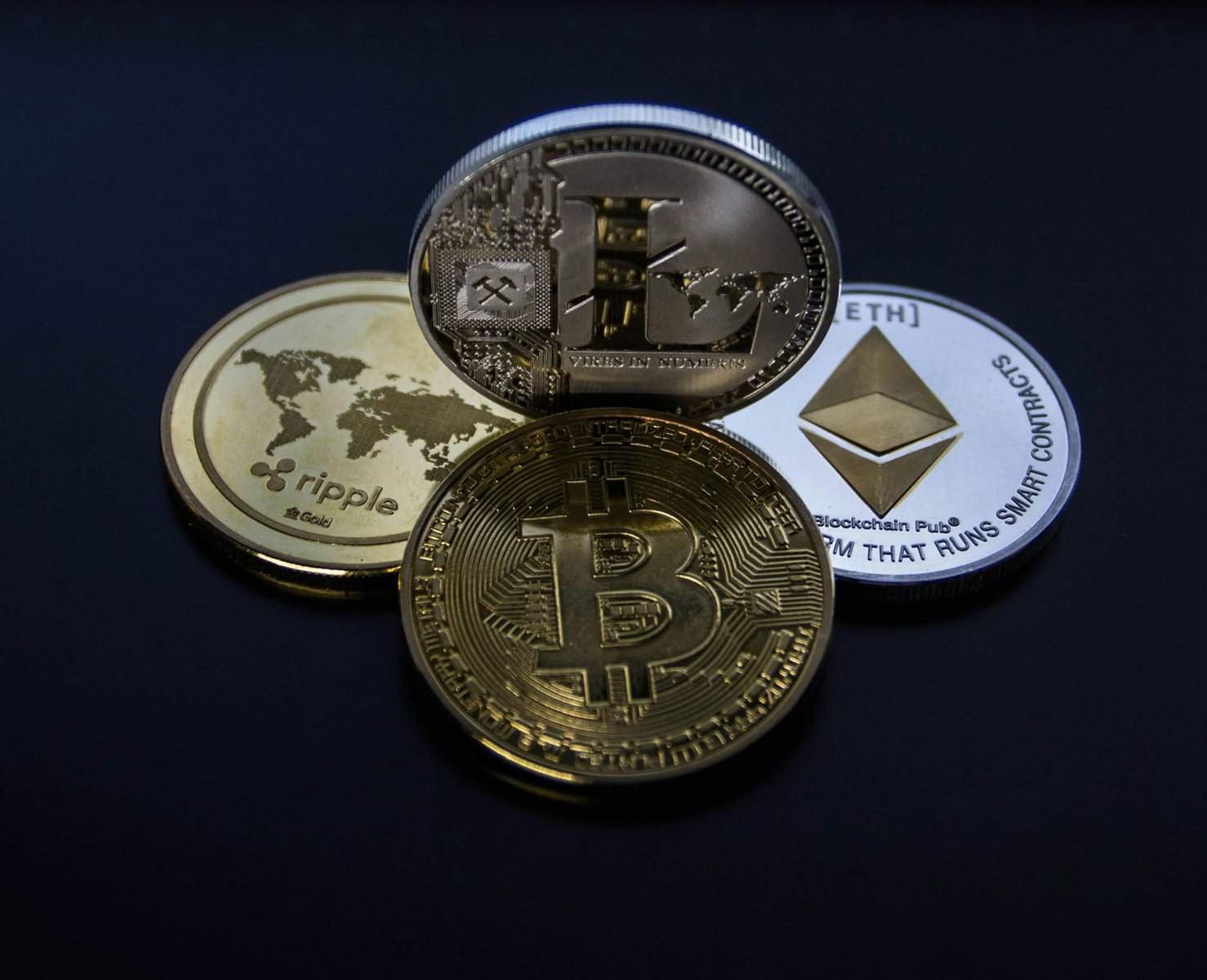Have you ever wondered what the best coins are for making cross-border transactions? In today’s globalized world, many people, businesses, and organizations are seeking efficient ways to send and receive money across borders. Cryptocurrencies have made significant strides in this area, but not all coins are created equal when it comes to cross-border efficiency, cost-effectiveness, and speed.
Understanding Cross-border Transactions
Cross-border transactions involve transferring money from one country to another, often requiring conversions across different currencies. Traditional methods usually involve banks and money transfer services, which can be slow and expensive due to fees and exchange rates. Cryptocurrencies, on the other hand, offer a new solution by providing a decentralized and often faster method of transferring value.
The Challenges of Traditional Systems
Traditional cross-border transactions often face delays, fees, and currency conversion issues. The process can be slow due to the involvement of multiple banking systems that operate differently. Additionally, the fees associated can take a big chunk out of the transferred amount, making it less ideal for individuals and businesses alike.
The Role of Cryptocurrencies
Cryptocurrencies provide an alternative by utilizing blockchain technology, which allows for the transfer of digital coins over the internet. They offer potential benefits such as lower fees, faster transaction times, and greater transparency. By bypassing traditional banking systems, cryptocurrencies provide a model that could revolutionize the way we send money across borders.
Key Factors in Choosing a Cryptocurrency
When considering which cryptocurrencies are best for cross-border transactions, several factors should be kept in mind. These factors can significantly influence the effectiveness of a cryptocurrency as a medium for international transfers.
Transaction Speed
For many, the speed of the transaction is paramount. In a world where time is money, being able to send and receive funds quickly can make a large difference.
Transaction Fees
Fees can vary widely between different cryptocurrencies. Ensuring that you choose a coin with lower fees can greatly affect the overall cost of transferring money, especially with large sums or regular transactions.
Exchange Rate Stability
Some cryptocurrencies are more volatile than others. Stability becomes crucial if you’re aiming to predict the amount the recipient will receive.
Network Security and Trust
The security of the network is vital to ensure that your funds are adequately protected from hackers and other threats. Trust in the network and its development team also plays a critical role.
Global Acceptance and Usability
Finally, a wider acceptance of the currency can make transactions smoother, as more exchanges and vendors will handle the coin.

Analyzing The Best Cryptocurrencies
Let’s look at some of the top cryptocurrencies that excel in cross-border transactions, providing you with a solid understanding of their strengths and weaknesses.
Bitcoin (BTC)
Bitcoin often comes to mind first due to its status as the world’s first cryptocurrency. It offers a significant level of trust and recognition.
- Transaction Speed: Typically slow when the network is congested.
- Fees: Higher than some other cryptocurrencies, but consistent.
- Stability: It has been known for volatility but remains less unpredictable than some newer coins.
- Security: Highly secure due to its decentralized network.
- Usability: Universally recognized, accepted by many vendors and exchanges.
Ethereum (ETH)
Ethereum is not only a cryptocurrency but also a platform enabling decentralized applications (DApps), making it highly versatile.
- Transaction Speed: Relatively quick, with improvements being implemented.
- Fees: Can be high, fluctuating with network demand.
- Stability: More volatile than Bitcoin due to its nature and future developments.
- Security: Generally secure with room for improvement.
- Usability: Widely used, with a growing ecosystem that enhances its acceptance.
Ripple (XRP)
Ripple focuses primarily on providing frictionless cross-border money transfers. It was designed with financial institutions in mind.
- Transaction Speed: Very fast, processing transactions in seconds.
- Fees: Extremely low, making it cost-effective for large sums.
- Stability: Less volatile compared to others.
- Security: High security measures in place.
- Usability: Supported by many financial institutions, offering a high level of trust.
Litecoin (LTC)
Litecoin offers a lighter, faster version of Bitcoin. It’s been around for years, proving to be resilient and reliable.
- Transaction Speed: Faster block time than Bitcoin.
- Fees: Generally lower than Bitcoin’s.
- Stability: Comparable to Bitcoin with some volatility.
- Security: Secured by a robust network similar to Bitcoin’s.
- Usability: Known for its speed and lower fees, making it a preferred choice for many users.
Stellar (XLM)
Stellar was created to bridge financial institutions and cryptocurrencies, with a focus on decentralized cross-border transactions.
- Transaction Speed: Designed for speed.
- Fees: Nominal, almost negligible.
- Stability: Designed to be stable to facilitate global financial system integration.
- Security: Strong security protocols.
- Usability: Facilitates exchange between different fiat currencies seamlessly.
Comparative Overview
Below is a quick comparative overview of these cryptocurrencies based on key factors, helping you to make an informed choice.
| Cryptocurrency | Transaction Speed | Fees | Stability | Security | Usability |
|---|---|---|---|---|---|
| Bitcoin (BTC) | Moderate | High | Moderate | High | High |
| Ethereum (ETH) | Quick | High | Volatile | High | High |
| Ripple (XRP) | Very Fast | Low | Less Volatile | High | High |
| Litecoin (LTC) | Quick | Low | Moderate | High | Moderate |
| Stellar (XLM) | Very Fast | Very Low | Stable | High | Growing |

Leveraging Cryptocurrencies for Business
For businesses, choosing the right cryptocurrency can significantly impact operations, particularly when dealing with international clients or suppliers. The benefits can be immense, from reduced costs to faster settlement times.
Managing Costs
By choosing a cryptocurrency like Ripple or Stellar, businesses can greatly cut down costs associated with traditional banking fees and currency exchange rates.
Enhancing Speed
In a competitive environment, the ability to quickly receive or send payments can be a game-changer, ensuring smoother business processes and better cash flow management.
Mitigating Risks
While some cryptocurrencies are volatile, utilizing stablecoins or coins with less volatility for transactions can hedge risks, ensuring predictable fund transfers.
Future of Cross-border Cryptocurrency Transactions
The future of cryptocurrencies in cross-border transactions seems promising. As more people embrace digital currencies, new advancements are on the horizon.
Technological Advancements
Continual improvements in blockchain technology may lead to faster and more secure transactions. Innovations like the Lightning Network for Bitcoin aim to solve scalability issues, potentially making Bitcoin even more efficient for global transactions.
Regulatory Environment
As governments develop clearer regulations around cryptocurrencies, the environment for their use could become more secure and widespread, encouraging more businesses and consumers to utilize them.
Increasing Acceptance
As more financial institutions start recognizing and integrating blockchain solutions, the trust in cryptocurrencies for cross-border transactions is likely to grow, further enhancing usability and acceptance.

Conclusion
Choosing the best cryptocurrency for cross-border transactions depends on diverse factors such as speed, cost, trust, and global acceptance. From Bitcoin’s secure and widespread nature to Ripple’s focus on speed and low cost, each offers unique advantages that could best suit your needs. As this landscape continues to evolve, staying informed about these factors will help you make the best decisions for your personal or business financial transactions. Understanding these dynamics not only empowers you in the world of finance but positions you at the forefront of what’s shaping up to be the future of monetary exchanges.

